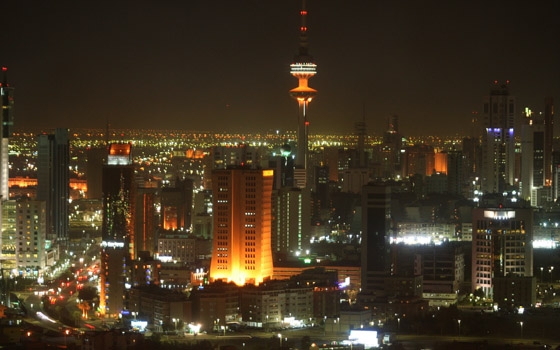KFH-Research issued a report stating that Kuwait has achieved a budget surplus of KD 17.2 billion ($60.3 billion) during first 10 months of current fiscal year from April-January 2013, with a 20 percent increase compared to same period last year. It added that Kuwait is expected to achieve budget surplus for the 15th consecutive year and is expected to reach KD 15.9 billion with 20 percent increase. This is due to the expected increase in governmental expenditure during last period of fiscal year 2012-2013.
Governmental expenditure reached KD 9.8 billion as in January 2013, which is KD 1.6 billion higher than last month, where expenditure regained its strength as the fiscal year ended. This occurred during the past years.
Kuwait registered a budget surplus of KD 17.2bln for the first ten months (April 2012 — January 2013) of the current fiscal year ending March 2013 (FY2012/2013), almost 20 percent y-o-y higher than the KD 14.4bln surplus recorded at the end of the same period of FY2011/2012, according to data from the Ministry of Finance. The increase is attributed mainly to higher revenue, which is 95 percent derived from oil proceeds while expenditure remained at almost the same level as it was a year ago.
Government revenue stood at KD 27.0bln for the first 10 months of FY2012/13, which was 11.7 percent higher than the corresponding period in FY2011/12 driven by oil revenue, which rose by 12.0 percent y-o-y to KD 25.6bln for the April 2012 — January 2013 period despite average oil prices (Kuwait Export Crude) declining by 1.1 percent over the same period. However, higher oil production which increased by 8.7 percent y-o-y for the first 10 months of FY2012/13 contributed the surge in oil revenue. Non-oil revenues were also up by 6.8 percent y-o-y surpassing the budgeted amount for the period by KD 0.4bln, on the back of higher miscellaneous revenues and fees. At KD 27.0bln, the 10-month revenue for FY2012/13 came in line our expectations as it accounted for 83 percent of our full year forecast of KD 32.4bln for FY2012/13.
Kuwait traditionally underestimates its oil price assumption and set it at just USD65.0pb for the FY 2012/2013 budget plan, resulting in a revenue projection that is normally lower than actual figures. Oil prices (Kuwait Export Crude) have thus far averaged at USD107.20pb from April 2012 to 26th March 2013 contributing to the much higher revenue than government projections.
Government expenditure registered KD 9.8bln as at January 2013, KD 1.6bln higher than the previous month as spending picked up towards the end of the fiscal year, as was normally the case in previous years. However, it still fell short of the budget target for the period by KD 7.9bln and still marginally lower (-0.1 percent y-o-y) than the previous fiscal year due to lower capital spending amidst delays in approvals and implementation of capital projects. The increased government expenditure in January 2013 was driven by accelerated current expenditure, of which wages & salaries and goods & services rose by some 17 percent y-o-y and 33 percent respectively in January 2013.
With just two months remaining for FY2012/13 and only less than 50 percent of the budgeted expenditure spent, we expect government expenditure to accelerate further towards the end of the fiscal year. We expect government expenditure to register an average monthly figure of KD 3.3bln for the remaining two months (February 2013-March 2013) of FY2012/13, amounting to KD 16.5bln for the whole of FY2012/13. However, we highlight that our FY2012/13 forecast for government expenditure will still be lower than the previous fiscal year's spending by 3.0 percent and the budget target by 22.2 percent.
We reiterate our forecast for Kuwait to register yet another record year of budget surplus of KD 15.9bln for FY2012/13, which is higher by 20.0 percent y-o-y compared to FY2011/12, supported by higher revenues and lower expenditure. As such, Kuwait is on track to register the 15th consecutive year of budget surplus. Revenue is expected to increase by 7.2 percent y-o-y to KD 32.4bln in FY2012/13 amidst increased oil production while expenditures are estimated to be slightly lower by 3.0 percent y-o-y at KD 16.5bln for FY2012/13 due to delays in spending and implementation of capital projects.
We expect fiscal policy to remain expansionary in the medium term. Capital expenditure growth is likely to remain modest in the near-term as the government has a track record of failing to dispense its budget in full as political disagreements within the parliament often constrained and delayed spending, particularly on capital projects. However, current expenditure is expected to increase steadily as the government wage bill is anticipated to rise on the back of a fast expanding public sector employment.. However, current expenditure will not be too burdensome for Kuwait's fiscal position as long as oil prices remain high.
The government is increasing the proportion of revenue it allocates to the Reserve Fund for Future Generations (RFGG) in FY 2012/2013, from 10.0 percent to 25.0 percent. Although this revenue would normally have gone to the General Reserve Fund, which is also managed by the Kuwait Investment Authority (KIA) and covers all budgetary expenditure, it is more difficult to access from the RFGG. The move follows warnings from the International Monetary Fund (IMF) that Kuwait could struggle to preserve its oil wealth for future generations if it does not exercise fiscal consolidation. Although the higher allocation to the RFGG addresses one aspect of such concerns, it will not be implemented in conjunction with a reduction in current expenditure.
Arab Times
12 April






















































